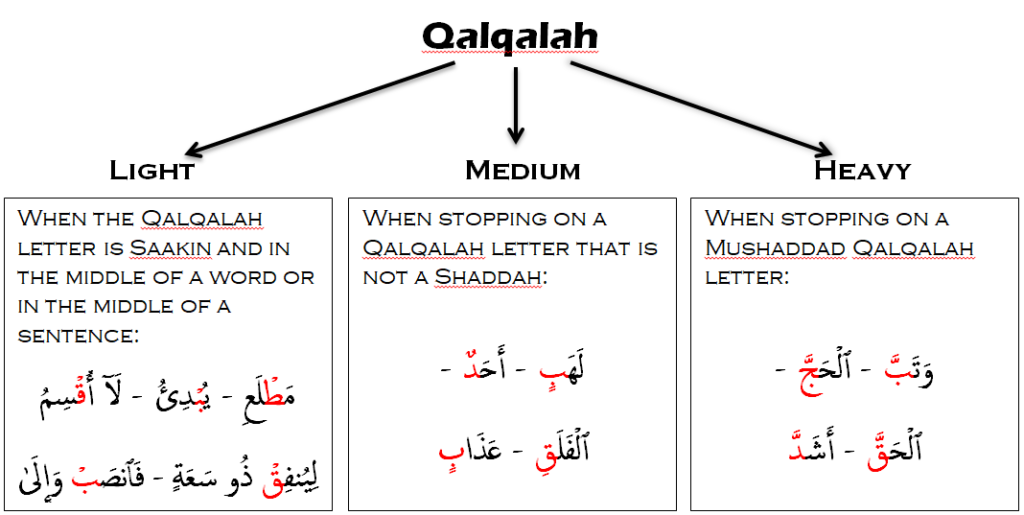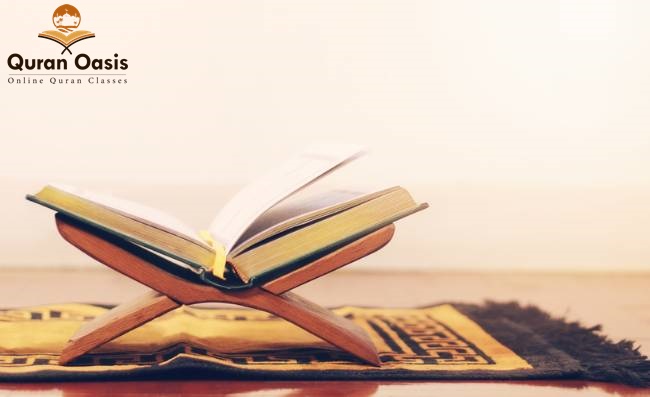The meaning of Tajweed in the language of improvement and perfection, but in the terminology, it is a science that investigates the correct pronunciation of the words of the Noble Qur’an and all that is related to that, such as endowment, beginning, connecting, and cutting, and the conditions and forms that occur to the letters. As for theoretical Tajwid,
it is the one that is concerned with the cognitive and scientific aspect of rulings, and it is a sufficient duty if enough Muslims learn it, it falls away from the rest. About some of the basic rules of intonation that must be known and familiarised with in order to achieve the correct and sound pronunciation of the Noble Qur’an.
What is Tajweed in Quran?

The science of tajweed: it is the science that studies the ways of pronouncing the letters, taking care of their exits, their qualities, and the rulings that are presented to them, and what is related to that in endowment, beginning, connecting, and definitively. To the fullest extent and without falling into error.
Quran tajweed rules?
On the authority of Hafsa bint Umar, may allah be pleased with them both, she said: “I never saw the Messenger of allah, may allahbless him and grant him peace, sitting in his rosary, until he was a year before his death, may Allah’s prayers and peace be upon him, for he used to pray in his rosary sitting, and he recited it long.”
And some of the basic rules of intonation and the rulings that most them have been practiced by the Arabs and applied in their speech without studying them, but this was their dialect and language in which the Noble Qur’an was revealed, and it is what keeps the reader away from the clear melody in the recitation, and the talk will be limited to the provisions of endowment and initiation, and the provisions of Noun sakina and tanween.
Examples of Tajweed rules: tajweed rules qalqalah and ikhfa rules tajweed
Definition of the qalqala
The qalqalah is defined linguistically as stirring and disturbance, as for the idiomatically it means: the disturbance of the letter in its exit when pronouncing it in a consonant until a strong tone is heard. In al-Wasl,
tajweed rules qalqalah is also described as the intensity of the sound, as Imam Ibn al-Jazari – may Allah have mercy on him – defined al-qabalah as the emergence of a sound similar to the tone when the letters of the qabalah are silent in the endowment and other things to increase the completion of their pronunciation.
The two ends of the pronunciation organ without any movement accompanied by any of the three movements, and what is related to the topic of the qalqalah, the letters of the qalqala, and the ranks of the qalqalah in the science of intonation is the subject of this article.
Qalqala letters
The Qalqala letters are five combined with the phrase “Qutb Jad.” Some scholars have added the letter hamza to the letters of the Qalqilah because it is a vowel and strong letter, and the loudness and the shadda are the two adjectives that are found in the letters of the Qalqilah and result in the adjective Qalqalah.

because if the letter is pronounced and severe it is necessary to stress it to complete it.
The pronunciation of it, as for the hamza, the majority are not to include it with the letters of the Qalqalah, because of the softening of the sukoon and the substitution that takes place in it, and because it is customary to take it out with kindness and gentleness and without pretension.
Although these two letters are neglected, the public did not consider these letters to be among the letters of the qabalah. This was an aspect of the discussion about the letters of the qabalah, and the next paragraph will be about the levels of the qabalah in the science of intonation.
Unlock the beauty of Quranic recitation with our Quran Tajweed Course. Whether you’re a beginner or looking to perfect your recitation, our course will guide you step by step through the rules of Tajweed Quran. Gain confidence in your recitation, understand the significance of proper pronunciation, and connect deeply with the Holy Quran.
Start your journey to mastering Tajweed Quran today and elevate your recitation to a whole new level!
Ranks of Qalqalah in Tajweed
The scholars differed in the ranks of the Qalqalah in the science of intonation on several sayings. To these three ranks, there is a fourth rank, which is for the vowel, given the existence of the origin of the qabalah in it.
The ranks of the qabalah in the science of intonation must be taken into consideration and taken care of when reciting the Holy Qur’an, because of its great impact on improving reading and thus increasing the ability to reflect and understand the meanings of the verses of the Book of Allah.
General matters and warnings about anxiety
We have talked about some topics related to the character of the Gullah, including its definition, its letters, and the ranks of the qalqalah in the science of intonation.
The description of the Gullah: Some of the later scholars went to specify the qalqala with the endowment because the forerunners indicated that the qabalah is clearer in the endowment than the wasl. It is what can be interpreted definitively and the context is what determines the intended meaning.
Some of the rules of intonation were known to the Arabs before the revelation of the Noble Qur’an, including the qalqala, the large and small dwarfing, the taqweem, and the exaltation.
Qalqalah is one of the necessary attributes that does not have an opposite, meaning that it accompanies the letter in all its states.
The origin of the Salalah is the letter qaf, due to the inability to pronounce it a consonant,
due to the severity of the appearance of the character of superiority in it.
What are all the Tajweed rules?
Tajweed Rules: A Comprehensive Guide
Tajweed is the art of reciting the Quran with proper pronunciation, articulation, and intonation. It ensures that the recitation adheres to the original Arabic language and conveys the intended meaning accurately. Here are some of the key Tajweed rules:
Endowment and Initiation
- Full Endowment: This occurs when the meaning of a sentence is complete, and the next sentence can be started independently.
- Good Endowment: The meaning is not complete, but the next sentence can still be started.
- Ugly Endowment: Stopping at this point would disrupt the meaning or convey an unintended message.
Nun and Tanween
-
Nun Sani: A noun without vowels has four possible pronunciations:
- Appearance: The nun is pronounced clearly.
- Loss: The nun is not pronounced.
- Fraternity: The nun is pronounced, but the following letter is assimilated.
- Assimilation: The nun is pronounced, but the following letter is pronounced differently.
- Tanween: A noun with a final “an” is pronounced differently depending on the following letter.
Other Important Rules
- Mudd: The prolongation of a letter.
- Hamzah: The glottal stop.
- Iqlab: The transformation of a letter into another.
- Idgham: The assimilation of a letter into another.
- Ghunnah: The nasalization of a letter.
- Ikhfa: The concealment of a letter.
Note: These are just a few examples of Tajweed rules. There are many more nuances and exceptions to consider for accurate Quran recitation.
Would you like to learn more about a specific Tajweed rule or explore other aspects of Quranic recitation?
Idgham: It means the language of input, as for the idiomatic expression it is the pronunciation of the two letters as the second with emphasis.
Iqlab: It means in the language of transformation, but technically it is to make a letter in place of another letter and its letter baa only.
Takhfeh: it’s meaning in the language of concealment, and idiomatically defined as the pronunciation of the consonant nun or tanween and the letter that follows them in a state between diphthong and manifest. The letters of concealment are fifteen letters: i, z, q, s, k”.
How long does it take to learn Tajweed?
It depends on everyone’s learning capacity and the free time in their day.

Here’s some advice you can follow to improve your learning:
- Dividing the teaching of intonation in a specific period
- We listen to trusted famous readers
- We repeat behind the sheikhs in order to learn to pronounce the correct rulings
Unlock the Divine Beauty of Quran Recitation!
Master the art of Quran Tajweed and elevate your recitation to new heights. Our expert-guided program helps you perfect your pronunciation, rhythm, and melodic flow—just as the Prophet Muhammad (peace be upon him) taught.
✨ Why Start Your Quran Tajweed Journey Today? ✨
- Learn proper Arabic pronunciation
- Understand essential recitation rules
- Gain confidence in your Quran reading
- Earn rewards for correct recitation
- Join a supportive learning community
Don’t wait to enhance your connection with the Quran. Take the first step toward mastering Quran Tajweed today!
🌟 SPECIAL OFFER: Get your first lesson FREE! 🌟
Click here to begin your Quran Tajweed journey
How do you memorize Tajweed rules?
How to Learn to Memorise the Noble Qur’an with basic tajweed rules chart The Messenger of Allah- may Allah’s prayers and peace be upon him – would recite the Holy Qur’an, and present it to the Companions – may Allah be pleased with them – with the provisions of intonation,
and so were the reciters of every era, And the rules of intonation continued to be received with the Noble Qur’an from the mouths of the sheikhs.
Therefore, the rules of intonation should be mastered by reading to a disciplined sheikh, in addition to memorizing the letters.
Because a defect in Tajwid is considered a defect in reading, even if the memorization of letters is perfect.
Learning from a skilled teacher
- is one of the things that helps to consolidate memorization; Reading to an elaborate old man; Because correcting mistakes takes precedence over memorizing the Qur’an, and it is incumbent on the learner to realize that he is prone to error, and his duty when the error occurs; Learn the correct way of reading, and master what his sheikh or teacher teaches him.
- In fact, teachers take one of two methods; Either the student reads the entire Holy Qur’an; His sheikh corrects his recitation, and he is not allowed to memorize in the year in which he recited, and in the second year; It is allowed to save, as for the second method; That the Sheikh corrects his student the verses he wants to memorize, and it is worth noting that correcting the recitation before memorizing makes memorization much easier. Until the memorization is completed in full.
And there’s a color-coded Quran tajweed rule to keep you in the row.
Other means and methods
One of the most popular ways to learn to memorize the Noble Qur’an with Tajwid is the following:
- Using the taught Qur’an, and listening to Tajweed lessons.
- Using applications related to the science of tajweed, whether they are audible or read.
- Resorting to what is known as electronic readers, or making use of modern means of communication in a correct manner; To reach the masters of recitation of the Qur’an, and to seek help and assistance from them as Allah loves and is pleased with.
- Reading and learning from theoretical books, including books on the provisions of recitation and intonation, including modern books and old ones, and what is available in the form of an electronic version on the Internet, but it is worth noting that these methods are used in the event of inability to learn the Holy Qur’an from A good old man.
How do I teach my child Tajweed?
- Adopting one sheikh for this task because there’s a list of tajweed rules so that the learner is not scattered between one method and another,
as well as between one Sheikh and another. With the need to be limited to memorizing and reading one edition of the Mushaf.
- The sincerity of intention to Allah – the Highest – and keenness to choose the appropriate place and time for memorization, drawing closer to Allah – the Highest – and always seeking help from Him, for memorizing is a success and facilitation from Allah – the Highest.
- Linking the verses of the Noble Qur’an to the meanings and their interpretation, and focusing on the verses during memorization, with the importance of repeating the memorization. Abandoning disobedience, sins, taboos, and committing acts of obedience and worship.
- Allocate a daily diary for preservation; So that the learner feels the necessity and importance of regularity in memorizing the Noble Qur’an,
and thus he perseveres in it without interruption.
What does small Meem mean in the Quran?
The endowment on the small meme in the Qur’an that is placed above the word is necessary, meaning that the reader must stop at it and start reading again with the words that follow, and it is drawn in the form: (m), and it was mentioned in several places in the Qur’an, including:
(إِنَّمَا يَسۡتَجِيبُ الَّذِينَ يَسۡمَعُونَۘ وَالۡمَوۡتَىٰ يَبۡعَثُهُمُ اللَّهُ ثُمَّ إِلَيۡهِ يُرۡجَعُونَ).
Is it compulsory to recite the Quran with Tajweed?
Tajweed in Qur’an is not obligatory, rather it is a matter of improving the sound with the Qur’an, so if it is possible to perform the Qur’an with intonation without being obligated or interrupted, then this is good. That this is contrary to the Sunnah, but what is meant by moderate intonation.
And the right thing is: that it is not obligatory, but it is a Sunnah. The Sheikh of Islam, may Allah have mercy on him, mentioned that those who take care of the recitation and pay it for it, this is a reason for not reflecting on the Qur’an; Because at that time a person has no concern except for reforming the pronunciation only, and he was truthful, may Allah have mercy on him. He mentioned this in the fatwas and said: It is not necessary to be obligated to tajweed.
And some brothers say: We recited to Imam Al-Dhahabi, may Allah have mercy on him, saying: Tajwid is a waste of time, I do not know about this, by Allah! But if it is true about him, then what he means is that the person does not get busy with it too much and neglects to pay attention to the meanings.
Is it important to read the Quran with Tajweed?
-
There is no disagreement among the scholars that learning the rules of intonation from a theoretical point of view is an obligation of sufficiency, not an individual obligation, as it is not obligatory for every Muslim to learn the science of intonation, except that it is obligatory for some scholars to confront this knowledge, so that sin is removed from the rest. The believers would have mobilized all of them, had it not been for a group of every group among them, a group to learn the religion and warn their people} (At-Tawbah: 122), and studying the science of tajweed comes from understanding the religion.
-
However, scholars differed regarding the ruling on reciting the Qur’an with tajweed, and is it obligatory for every Muslim to recite the Holy Qur’an with a quality reading, in which he fulfills the rules of tajweed? Is a sinner who does not observe the provisions of intonation in his reading of the Holy Qur’an? The scholars have two opinions regarding this:
-
The first view: It is the opinion of the scholars of Tajweed who say that reciting the Qur’an with Tajweed is obligatory for every Muslim male and female. Given the evidence.
-
The second view: It is the opinion of the jurists who believe that reciting the Qur’an while observing the rules of intonation and its rules is a Sunnah and one of the etiquettes of recitation, it should be observed without pretension, but that is not obligatory.
-
Among the sayings of the forerunners indicating that it is obligatory is what Abu Amr al-Dani said, after he mentioned a set of Qur’anic and prophetic evidence that indicate the importance of reciting the Qur’an with intonation, he said: “And what we have presented is evidence of the emphasis on the science of intonation, and taking into account the investigation.”.
· Among the sayings of the forerunners who say that it is obligatory is Nasr Al-Shirazi’s saying: “Good performance is an obligation in the recitation, and the reader must recite the Qur’an with the right to recite it.” Ibn Al-Jazari said: “There is no doubt that the nation is just as they worship by understanding the meanings of the Qur’an and establishing its limits, so are they worshipers by correcting its words and establishing its letters on the quality received from the imams of reading, and related to the Prophet, may Allah’s prayers and peace be upon him.”
Do you want your kids to learn more about Online tajweed Classes? Sign up for Quran Oasis’s Online tajweed Classes program and watch them dive deeper into the Quran science and learn the Holy Book of Allah.
Quran Oasis’s online Arabic classes for kids, Quran classes for adults and let your children learn the accurate Quran recitation and word pronunciation even if Arabic is not their first language.
Quran teaching for children in Quran Oasis is fun as well as structured, they’ll learn with eLearning Quran;
Our Quran teacher, Arabic teacher, Islamic Studies teacher, tajweed teacher, ( House of Quran ) will be their friends during this amazing journey.
Online Quran tuition learning can be challenging if you’re seeking it for your kids. Quran Oasis offers you a wide variety of topics to teach your children online.
Quran Oasis’s experienced tutor( male teacher & female teacher ). They have many years of experience in Teaching Arabic online and Quran online to non-Arabic speakers.
Whether it’s Quran online, Arabic online, Tajweed, Ijazah, tafsir, Qirat, or Islamic Studies,
Quran Oasis has your back with professional Quran tutors who are willing to go further with your kids’ education. With an attractive interface and well-structured lessons,
Quran Oasis gives you and your children the chance to learn with Quran ayat who are going to be your kids’ new friends, accompanying them in their learning process and encouraging them to learn more.

